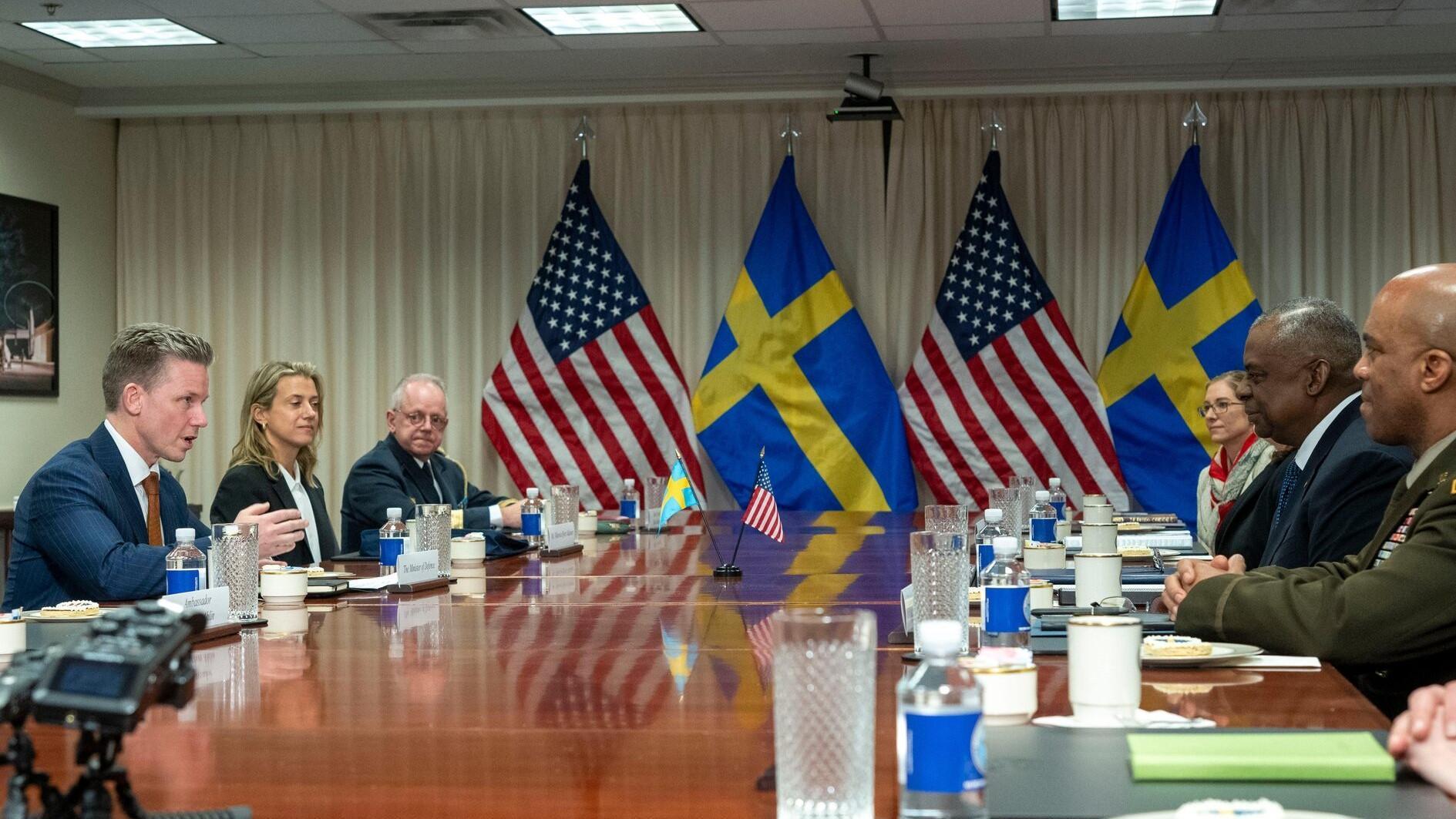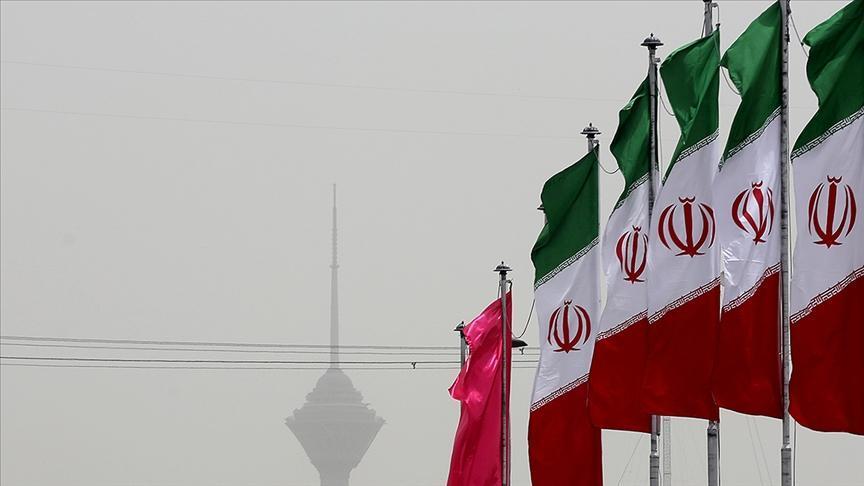Swedish MPs vote on US defense deal amid nuclear fears
STOCKHOLM

Swedish lawmakers vote Tuesday on a controversial defense deal with the United States, which critics fear could lead to the deployment of nuclear weapons and permanent U.S. bases on Swedish soil.
The Defense Cooperation Agreement (DCA) is a major step for a country that in March ended two centuries of neutrality to join NATO.
Signed by Stockholm and Washington in December, the deal would give the U.S. access to 17 military bases and training areas in Sweden, and allow the storage of weapons, military equipment and ammunition in the country.
Opponents say the agreement should state outright that the Scandinavian country will not allow nuclear weapons on its territory.
"The agreement has no limits," argued Daniel Hellden, co-leader of the opposition Green Party, which together with the Left Party opposes the DCA agreement.
"It opens up nuclear weapons on Swedish soil... And it is so vaguely written that the government could even allow them in peacetime," he told SR public radio on Monday.
"We're going to be a target for nuclear weapons. We're going to have 17 bases where the Americans can store material," he added.
Swedish Prime Minister Ulf Kristersson's centre-right minority government, propped up by the far-right Sweden Democrats, has insisted the deal respects Swedish sovereignty.
"Sweden is a sovereign nation and it will always be Sweden that decides what type of weapons we allow," Defense Minister Pal Jonson told SR.
"Parliament has already agreed that we will never need permanent bases or nuclear weapons on Swedish territory and that was specified in our NATO accession," he added.
'Naive'
For the bill to pass Tuesday, it has to win a 75 percent majority that includes the votes of more than half of the Riksdag legislature's 349 MPs.
The vote is to be held after 5:15 pm (1515 GMT).
The Left and Green parties, which both voted against Sweden's NATO membership, together hold just 42 seats — not enough to block the agreement's adoption on their own.
Two Left Party MPs called the government's handling of the agreement "not just naive, but downright foolish", in an op-ed article in daily Aftonbladet on Sunday.
They said the DCA makes Sweden less safe because "U.S. defense and security policy is based on nuclear weapons.
"Nuclear weapons are a threat to mankind. That the government hasn't demanded any guarantees against such a brutal weapon of mass destruction is terrifying," they wrote.
The Swedish Peace and Arbitration Association, one of the biggest critics of the move, said two successive Swedish governments insisted during the NATO application process that Sweden would have the same stance on nuclear weapons as neighbouring Denmark and Norway.
"But unlike Norway's and Denmark's DCA agreements, there is no clause in Sweden's agreement against nuclear weapons being brought into or placed in Sweden," the association's head Kerstin Bergea wrote in another op-ed.
In addition, Finland, which joined NATO in April 2023, "has a national law prohibiting nuclear weapons on Finnish territory and Finland's DCA agreement refers to this law."
A similar Swedish clause would "strengthen the Nordic region and contribute to a joint de-escalation vis-a-vis Russian nuclear weapons," Bergea said.
Nukes in wartime?
Sweden's prime minister made headlines last month when he opened the door for the possibility of nuclear weapons in Sweden during wartime.
"In a war situation it's a completely different matter, (it) would depend entirely on what would happen," Kristersson told SR.
The two Left MPs wrote: "That's an incredible statement and is totally the opposite of what the Swedish people think and what Sweden has long stood for."
Bergea questioned whether Sweden would be able to put a brake on the United States.
"An agreement based solely on confidence is not enough in important matters such as these," she said.
Defense minister Jonson has said Sweden needs to strengthen its international cooperation "to defend our freedom and democracy".
"With the DCA, Sweden can receive early, swift and effective military support from the United States in a deteriorating security situation," he said last month.
"The agreement acts as a deterrent and is stabilising. It reduces the risk of war breaking out and makes Sweden safer," Jonson said.
















